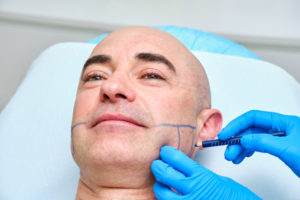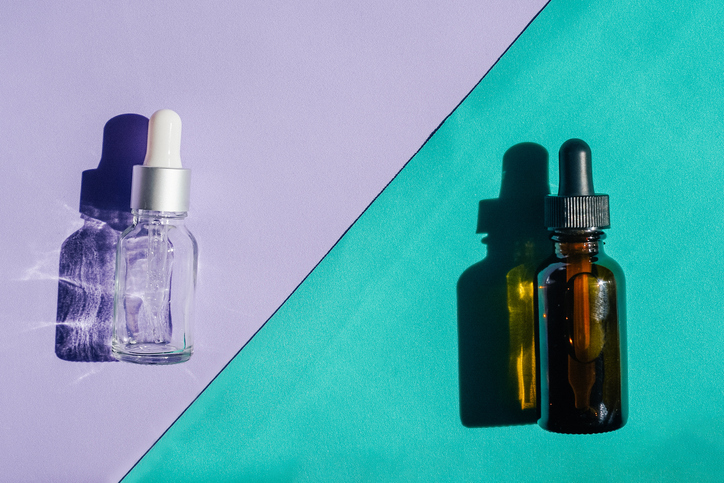
Can you lift your eyebrows without surgery?
We will delve into non-surgical alternatives that can have your eyebrows raising.
Dr Michael Rich is a specialist dermatologist who has been performing tumescent liposuction for over 30 years. Find out if Liposuction is suitable for you at ENRICH Clinic.
At ENRICH Clinic, we have a wide range of dermatological and cosmetic body treatments tailored to individual body and patient needs.
At ENRICH Clinic, our treatments are performed by our medical team consisting of doctors, nurses, and dermatologists and are tailored to each patient’s skin health needs.
ENRICH Clinic is committed to your skin health and well-being with a range of dermatological & cosmetic treatments tailored to the individual. Our treatments are performed by our medical team consisting of doctors, nurses, and dermatologists.
Skin health is essential for everyone. ENRICH Clinic has a wide range of technologies and dermatological solutions to help you achieve your skin care goals.
Bruxism, commonly called teeth grinding, is a dental condition affecting countless individuals worldwide. You may have experienced its effects yourself, perhaps in the form of persistent jaw pain, worn-down teeth or disrupted sleep.
If you’ve sought treatment, you may have been advised to consider a surprising option: anti-wrinkle injections. These injections, typically associated with cosmetic enhancements, have recently emerged as a potential treatment for bruxism.
But is this approach to bruxism treatment founded on hope or hype?
In this article, we’ll delve deep into the science behind anti-wrinkle injections for teeth grinding, their effectiveness and potential risks.

Teeth grinding can occur due to a variety of factors. While the exact cause can sometimes be challenging to determine, the following are some of the most common reasons:
If you’re grinding your teeth, you might experience a range of symptoms, from the ones we mentioned in the previous section to severe cases, such as serious dental damage, changes in facial appearance and severe jaw disorders. Conventional treatments for bruxism include dental interventions, behavioural therapies and medications.
Now, let’s talk about anti-wrinkle injections. They are treatments that have been used for decades to address wrinkles and fine lines. When these are injected into a muscle, they block nerve signals in that muscle, reducing its activity and causing a temporary reduction in muscle contraction. This is what leads to a softening of wrinkles and fine lines on your face.
If you’re considering anti-wrinkle injections for teeth grinding, you’re probably wondering how they work. The process targets your masseter muscles – the ones you can feel bulging when you clench your jaw or grind your teeth.
When these injections are administered into your masseter muscles, they block the nerve signals that cause these muscles to contract. This results in your masseter’s relaxation, significantly reducing the force with which you grind your teeth.
You might be asking, “Does this weaken my jawline?” The answer is not exactly. Anti-wrinkle injections in the masseter muscle don’t weaken the jawbone itself; instead, they relax the overactive masseter muscle, which could result in a less pronounced jawline due to decreased muscle bulk. However, this effect is often subtle and may not even be noticeable.
You might also be concerned about whether masseter anti-wrinkle injections will make your face sag. While these injections relax the masseter muscles, they don’t cause your skin to sag. Sagging skin is typically a result of decreased skin elasticity or loss of facial fat, not relaxed muscles.
In fact, for some people, masseter anti-wrinkle injections can have a slimming effect on the face. This is because chronic teeth grinding can lead to hypertrophy or enlargement of the masseter muscles, giving a wider, square-shaped appearance to the lower face. By relaxing these muscles, the injections can reduce the size of the masseter muscles, leading to a slimmer, more oval-shaped face.
But results can vary significantly from person to person. What’s most important is that these injections can provide relief from the pain and dental damage caused by teeth grinding.
It’s a straightforward process that involves a few key steps:

You should start to notice a reduction in your teeth grinding within a couple of weeks as the product takes effect. This will be where the masseter muscles begin to relax, reducing the force and frequency of teeth grinding.
Your doctor may also schedule a follow-up appointment a few weeks after the treatment to assess its effectiveness and determine whether additional injections are needed.
The effects of anti-wrinkle injections in the masseter muscle aren’t permanent; they typically last for a certain period before gradually wearing off. On average, you can expect the effects of these injections to last between three to six months. However, this is patient-dependent. Success factors include the severity of your teeth grinding, the size of your masseter muscles and the exact amount of product used.
After this time, the masseter muscles will slowly regain their original strength, and you may notice the return of your teeth-grinding symptoms. To maintain the results, you’ll likely need to have the treatment repeated. The good news is that with repeated treatments, the results can sometimes last longer. This is because the masseter muscles can become trained to function with less force, which might prolong the period of relief you experience.
As with any treatment, weigh the benefits against the potential risks and costs outlined below. Discuss these factors thoroughly with your healthcare provider to make the most informed decision about your bruxism treatment.
While masseter anti-wrinkle injections can be an effective treatment for teeth grinding, like any medical procedure, they come with potential downsides that you should be aware of.
Remember, discussing all potential risks and side effects with your healthcare provider before deciding on any treatment is crucial. While many people have found relief from bruxism with anti-wrinkle injections, you should fully understand the potential downsides to make an informed decision.
Determining whether you’re a good candidate for anti-wrinkle injections for teeth grinding involves a thorough evaluation by a qualified professional. They typically consider the following factors during this assessment:
The severity of your bruxism plays a significant role in determining whether anti-wrinkle injections would be an appropriate treatment. For example, anti-wrinkle injections could benefit you if you’re experiencing frequent, severe teeth grinding that is causing dental damage or significant discomfort.
Your healthcare professional will want to know what other treatments you’ve tried for your teeth grinding and how successful they’ve been. This could include dental appliances, behaviour modification techniques or medications. If these interventions have not provided sufficient relief or have caused undesirable side effects, you may be a candidate for anti-wrinkle injections.
Certain conditions or medications may increase the risk of complications from anti-wrinkle injections. For example, people with certain neuromuscular disorders, such as myasthenia gravis, or those who are pregnant or breastfeeding may not be suitable candidates. Therefore, providing your healthcare professional with a comprehensive overview of your health status is essential to ensure safety.
Anti-wrinkle injections, while potentially an effective treatment for bruxism, are unsuitable for everyone. Our doctors at Enrich can help you weigh the potential benefits and risks and guide you in making the best decision for your circumstances.
Book an appointment with us today.
*With all surgeries or procedures, there are risks. Consult your physician (GP) before undertaking any surgical or cosmetic procedure. Please read the consent forms carefully and be informed about every aspect of your treatment. Surgeries such as liposuction have a mandatory seven-day cooling-off period to give patients adequate time to be sure of their surgery choice. Results may also vary from person to person due to many factors, including the individual’s genetics, diet and exercise. Before and after photos are only relevant to the patient in the photo and do not necessarily reflect the results other patients may experience. Ask questions. Our team of dermatologists, doctors and nurses are here to help you with any of your queries. This page is not advice and is intended to be informational only. We endeavour to keep all our information up to date; however, this site is intended as a guide and not a definitive information portal or in any way constitutes medical advice.
"*" indicates required fields
Combining Dr Rich’s dermatological skill with his knowledge of restorative skin regimes and treatments, the ENRICH range is formulated to help maintain and complement your skin. Our signature Vitamin C Day & Night creams are now joined by a Vit A, B,&C Serum and a B5 Hyaluronic Gel, both with hydration properties and much, much more.

We will delve into non-surgical alternatives that can have your eyebrows raising.

In the world of aesthetics and dermatology, the right pairing of treatments can work together in harmony, offering exponential benefits beyond the individual results of each procedure.

If you’re looking to get well-defined jowls, chin liposuction is still the quickest and most effective way to reshape your face. However, if you prefer non-surgical alternatives, there are options.

By understanding what to expect, what the procedure involves and what questions you should ask before getting anti-wrinkle injections, you can ensure the best possible outcome for your procedure.
Subscribe to the ENRICH newsletter and receive latest news & updates from our team.
Enrich Clinic acknowledges the Traditional Lands of the Wurundjeri Woi Wurrung and Bunurong peoples of the East Kulin Nations on which we work and trade. We pay respect to their Elders past, present and emerging. We extend our acknowledgement and respect to the LGBTQIA+ community who we welcome and support. Read our full Acknowledgement Statement here
